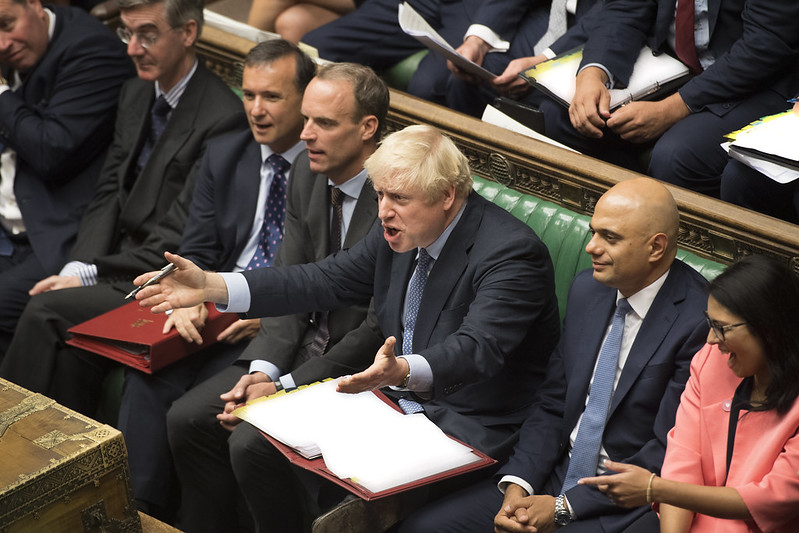 Unseen comments on late drafts of the UK government’s “dodgy dossier” could be key to the understanding of build up to the Iraq war, says Chris Ames
Unseen comments on late drafts of the UK government’s “dodgy dossier” could be key to the understanding of build up to the Iraq war, says Chris Ames
As the Chilcot Inquiry into the Iraq war starts its work, the government is still blocking release of documents that could show how the September 2002 dossier on Saddam Hussein’s weapons of mass destruction was “sexed-up”. I can reveal that these include unpublished comments on late drafts of the dossier from the intelligence services themselves. They are likely to show that Tony Blair was warned that intelligence assessments had not, as he claimed, “established beyond doubt” that Saddam Hussein was still developing chemical and biological weapons.
The revelation comes in a letter from the Cabinet Office, in response to my latest freedom of information (FOI) request. Earlier in the year, the Cabinet Office was forced to publish a series of comments on an early draft dossier, dated 10 September 2002, showing that analysts at the Ministry of Defence were highly sceptical of its claims.
My new request is for any comments on dossier drafts dated 16 and 19 September. The Cabinet Office has admitted that it retains relevant documents that were not disclosed via the 2003 Hutton Inquiry. But it has once again invoked the FOI Act exemption relating to national security and says it is considering the public interest in releasing these papers. It has also revealed that some information comes from or relates to the intelligence services themselves, which means that it is entirely exempt under FOI.
The evidence trail disclosed by the Hutton Inquiry has some obvious gaps which give a strong indication of what the missing documents could be. They could be highly significant. Documents published by Hutton show that the dossier was amended between the drafts in question following comments from the Joint Intelligence Committee (JIC), whose members include the heads of MI5 and MI6. Specifically, the foreword was amended so that it did not present the dossier as the work of the JIC or present its claims as representing the committee’s formal judgements. But the precise comments that led to these changes have never been published.
On 17 September 2002, Blair’s director of communications Alastair Campbell sent JIC chairman John Scarlett, who was responsible for co-ordinating the dossier’s production, a draft of the foreword that he had written in Blair’s name. This stated that the dossier was “the work of the JIC” and claimed: “What I believe the JIC reports to me have established beyond doubt is that Saddam has continued to produce chemical and biological weapons, that he continues in his efforts to develop nuclear weapons, and that he has been able to extend the range of his ballistic missile programme.”
But the next day Scarlett sent Campbell a version of this text that removed the claim that the dossier was the work of the JIC. He told Campbell that this change was one of the “key points” in his version. He also said that he was seeking the “views of JIC colleagues”.
Scarlett then told Campbell that there would be further amendments and the next day sent him a version of the foreword that further distanced the dossier’s claims from the JIC. Instead of attributing to “JIC reports” Blair’s belief that Saddam was “beyond doubt” continuing to develop WMD, this draft stated that the claim was based on “the assessed intelligence”. It should have been clear that Blair’s claim was his own interpretation of the intelligence, not what the JIC had told him.
The reasons behind these changes, which were overlooked by the Hutton Inquiry and the later review of intelligence by Lord Butler, could be highly significant and are likely to be contained in unpublished emails or memos setting out the views of Scarlett’s “JIC colleagues”. If they explicitly warned that Blair’s claims went further than the committee’s own reports, Blair and Campbell, rather than the intelligence services, will have to take the blame for the a war that was ultimately based on a false prospectus.
Unfortunately, it appears that the documents that could establish this are covered by an absolute exemption under the FOI act, based not on their contents or national security implications but on their origin alone. This shows the limitations of the FOI Act. But if this is the case, it is essential that the Chilcot Inquiry insists on seeing — and publishing — these potentially crucial papers.




